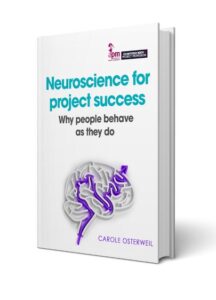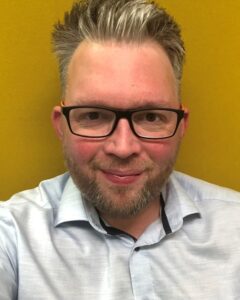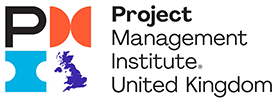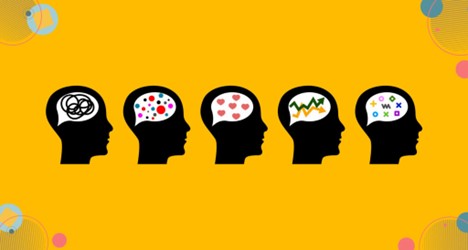Did you know as many as one in three* project professionals working in the UK today identify as neurodivergent?
Neurodiversity is a strengths-based paradigm that uses positive psychology to highlight the natural diversity of thought, behaviour and academic/experiential learning within any group of people.
In the workplace, neuro-inclusive policies and practices often bring a competitive advantage. However, there are many business leaders who feel threatened by diversity – especially neurological differences and non-visible disabilities. The decision whether to disclose their neurodivergence (or physical disability for that matter) lies with the individual because unconscious bias is known to influence decisions and actions. Prejudicial thoughts and discriminatory actions can be masked at work, but this is harder when protected characteristics aren’t visible or fear is stoked by misinformation.
In a world designed for the ‘neurotypical’, it takes enormous amounts of cognitive energy for those who are neurodivergent to constantly adapt so they ‘fit’. And if you don’t fit, you don’t feel accepted – in some ways you may feel like a foreigner in your hometown. For neurodivergent jobseekers, you may feel more like a refugee without a hometown – and sadly a very high proportion of openly neurodivergent people are unemployed.
It does not have to be like this! Neurodivergent Project Manager, Carrick Brown, explains how Neuroscience for Project Success, written by Carole Osterweil made all the difference for him.
*Source: APM’s recent research conducted by Censuswide of over 1,000 project professionals working across various sectors in the UK.
Becoming Neurodivergent
After an early career delivering healthcare services in hospital settings, I moved into the charity sector to deliver and develop national services. Just two years into this transition, I became an executive leader responsible for designing and implementing strategies to ensure that families of children with disabilities could access the right equipment at the right time.
Four years ago, following a workplace incident, I acquired post-traumatic stress disorder (PTSD). This incident caused significant disruption and trauma for everyone involved. My role had become untenable. Determined not to be a victim, I focused more on the families needing additional support (as mine had, when I was a young carer for two disabled brothers), than on my own wellbeing.
PTSD, in combination with my hyperfocus, perseverance and stubbornness, (which I suspect are indicative of undiagnosed high-functioning Autism), created a long-term change in the way I experience the world. These days, I have to manage the prominent anxieties and fears associated with PTSD on a daily basis. If I do not, my mental health suffers and it becomes easier to be triggered by situations.
When I got my diagnosis, no-one explained the concept of neurodiversity. As a healthcare professional, I understood the newly acquired malplasticity of my brain and therefore understood this to be a deficit. My neurodivergent identity only became clear when my son was diagnosed with Autism and Dyslexia. In explaining his diagnoses to family, friends and school, my own experience began to make sense.
Becoming a Neurodivergent Project Manager
I took a career break to help my son access the educational and care support he needed. On returning to work, I became a Prince2 practitioner and was appointed into the role of National Caring Services Project Manager with another national charity.
When interviewing for this position, I took a risk by disclosing my neurodivergence for the first time. My line manager was fantastically supportive, and because I wanted everyone in the organisation to have the same experience, I became Co-chair of the Disability, Accessibility, Wellbeing and Neurodiversity (D.A.W.N) Staff Network. I led on educational campaigns to raise awareness of the organisation’s inherent neurodiversity and supported wide adoption of universal design principles so that individuals did not need to disclose their needs in order to benefit from adjustments/adaptations.
I came to Carole Osterweil’s book, Neuroscience for Project Success, with a question: ‘Will this content help me engage with diverse stakeholders and/or realise success as a neurodivergent project manager?’
The answer is yes, enormously!
It gives fantastic insights into how to successfully achieve inclusive project management.
Firstly, it highlights a universal truth. All project and change professionals operate in a stressful, VUCA (Volatile, Uncertain, Complex & Ambiguous) world, and everyone – whether they identify as neurodivergent or not – faces the same central challenge. Under constant stress, our thinking brains are frequently ‘taken offline’. This results in sub-optimal behaviours and decisions which make it far harder to realize project benefits.
Secondly, it lays out a set of universal design principles to follow whether you identify as neurodivergent or neurotypical. Grounded in neuroscience, these principles and associated tools make our VUCA world less VUCA, bringing project success within reach. They centre on learning to ‘bring our thinking brains online’. This powerful act creates the conditions for people to accept and engage with change, and it safeguards cognitive capacity and mental health.
Neuroscience for Project Success has a reader-friendly structure and style combined with person-centric examples and organisational case studies. I found it an accessible and easy read.
Becoming a Neurodivergent Leader
Full of practical lessons, I returned to several sections more than once as I applied the principles and tools at work. These have helped me:
- understand why I behave the way I do,
- evolve my professional identity,
- prioritize my wellbeing at work, and
- lead my projects and programmes with confident humility and curiosity about behaviours.
Together they have revolutionized my relationships with Project Boards and Business Executives/Sponsors. Many of whom followed my lead and either disclosed their neurological differences and workplace needs or adopted inclusive behaviours.
I no longer struggle with personal or professional parts of my identity. I am more than the sum of my parts. I am curious. I am humble. I am a fantastically skilled communicator. I am a compassionate and inclusive leader who loves facilitating collaborative efforts to co-design and successfully implement transformative organisational change.
But most importantly, I have learned that my mental health and that of those affected by change is more important than any project outcome. If we follow these universal principles, we don’t need to choose between realizing project benefits and safeguarding our mental health!
 I highly recommend Neuroscience for Project Success to everyone working on projects, change and transformation. It inspired further study of neuroscience and my qualification as an Agile Change Coach.
I highly recommend Neuroscience for Project Success to everyone working on projects, change and transformation. It inspired further study of neuroscience and my qualification as an Agile Change Coach.
The book’s publishers @Association for Project Management are generously offering a 20% discount in support of Neurodiversity Celebration Week.
To get the 20% discount you must use this link to their bookshop & this code NEURO24, between these dates 18-25 March inclusive.
Find out more about the book & download a wonderful sample here
 Carrick Brown is a neurodivergent executive leader and strategist with project and change management expertise. Passionate about improving health and social care outcomes and addressing inequalities, he brings over 18 years’ experience of designing, delivering and continuously developing innovative and accessible national services.
Carrick Brown is a neurodivergent executive leader and strategist with project and change management expertise. Passionate about improving health and social care outcomes and addressing inequalities, he brings over 18 years’ experience of designing, delivering and continuously developing innovative and accessible national services.
Perturbed by the lack of human-centric change within business & the negative impact this has on service users receiving care/support from employees who are left feeling marginalised & disenfranchised with one foot out of the door – he’s on a mission to ensure organisations strategically put equity & inclusion at the heart of transformational change.


